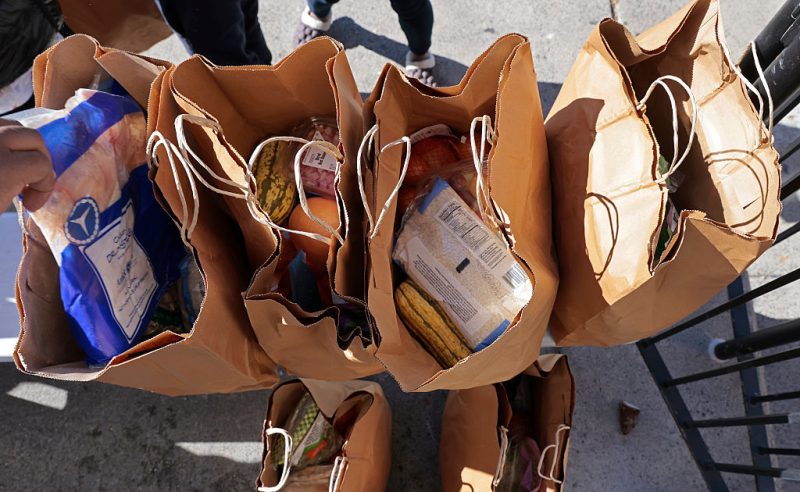The future of the Supplemental Nutrition Assistance Program (SNAP) hangs in the balance as the federal government nears a potential shutdown. With just days left before November, over 40 million Americans who rely on this vital assistance may face uncertainty in affording groceries. The United States Department of Agriculture (USDA) has issued warnings to states, indicating that SNAP benefits could be disrupted if the shutdown extends into the next month.
Currently, SNAP supports individuals and families living at or near the poverty line, providing crucial funding for their grocery needs. As many as 1 in 8 Americans depend on this program, making its continuity essential for food security.
Possible Solutions to Prevent Food Insecurity
As the deadline approaches, various stakeholders are exploring options to ensure that SNAP benefits continue without interruption. If the federal government reopens soon, benefits for November could be disbursed as scheduled. Additionally, legislation introduced by Senator Josh Hawley (R-Mo.) aims to provide emergency funding for SNAP even if the government remains closed.
The USDA may also utilize contingency funds to maintain SNAP operations, but this would require around $8 billion, while the agency’s contingency fund stands at approximately $6 billion, according to reports from CNN.
Some states are taking proactive measures to mitigate the impact of a potential funding gap. For instance, Virginia has declared a state of emergency to access emergency funds, while Colorado’s governor has requested legislative approval to allocate up to $10 million from the state’s general fund to support local food banks. In California, Governor Gavin Newsom is expediting $80 million for food banks and mobilizing National Guard troops to assist with food distribution. He emphasized the urgency of the situation, stating, “This is serious, this is urgent – and requires immediate action.”
Nonprofits Prepare for Increased Demand
Local and regional charities are bracing for a surge in demand for food assistance should SNAP funding be disrupted. Organizations such as Catholic Charities of Acadiana in Kentucky have already called for donations, citing concerns for families and individuals who are already struggling financially.
In Colorado, the Feeding Colorado initiative has been launched to encourage community support during this challenging time. Governor Jared Polis called on residents to help ensure that families can continue to access food while federal funding is uncertain.
The potential impact on food banks is significant. According to George Matysik, executive director of Philadelphia’s Share Food Program, “The amount of food that SNAP provides has been estimated to be nine times larger than the entire food bank network combined.” He stressed the unlikelihood that food banks could fully compensate for the loss of federal assistance.
Nonprofits like Servants Center in Grand Rapids, Michigan, are also preparing for the fallout from the shutdown. Nia Wolfe, a clinical supervisor at the organization, highlighted the challenge of bridging the gap for those in need. “How do we help them? Our backs are against the wall,” she stated, illustrating the pressures faced by community organizations.
As the situation develops, it remains critical for individuals in need to seek assistance. The Feeding America website is a valuable resource for locating food banks and other support services in the area.
The looming uncertainty surrounding SNAP benefits underscores the urgent need for swift action from both federal and state authorities. With millions of Americans relying on this essential program, the potential disruption poses a significant risk to food security nationwide.
